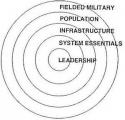
Originally Posted by
Dr. Kilcullen
It sounds like you’re proposing classic counterinsurgency strategy: a combination of offensive and defensive military operations, political and economic development, and diplomacy. Isn’t that what we’ve been doing these past seven years? Have we just not been doing enough of all these? Or do we need to change strategy to something fundamentally new?
Well, we need to be more effective in what we are doing, but we also need to do some different things, as well, with the focus on security and governance. The classical counterinsurgency theorist Bernard Fall wrote, in 1965, that a government which is losing to an insurgency isn’t being out-fought, it’s being out-governed. In our case, we are being both out-fought and out-governed for four basic reasons:
(1) We have failed to secure the Afghan people. That is, we have failed to deliver them a well-founded feeling of security. Our failing lies as much in providing human security—economic and social wellbeing, law and order, trust in institutions and hope for the future—as in protection from the Taliban, narco-traffickers, and terrorists. In particular, we have spent too much effort chasing and attacking an elusive enemy who has nothing he needs to defend—and so can always run away to fight another day—and too little effort in securing the people where they sleep. (And doing this would not take nearly as many extra troops as some people think, but rather a different focus of operations).
(2) We have failed to deal with the Pakistani sanctuary that forms the political base and operational support system for the Taliban, and which creates a protective cocoon (abetted by the fecklessness or complicity of some elements in Pakistan) around senior al Qaeda and Taliban leaders.
(3) The Afghan government has not delivered legitimate, good governance to Afghans at the local level—with the emphasis on good governance. In some areas, we have left a vacuum that the Taliban has filled, in other areas some of the Afghan government’s own representatives have been seen as inefficient, corrupt, or exploitative.
(4) Neither we nor the Afghans are organized, staffed, or resourced to do these three things (secure the people, deal with the safe haven, and govern legitimately and well at the local level)—partly because of poor coalition management, partly because of the strategic distraction and resource scarcity caused by Iraq, and partly because, to date, we have given only episodic attention to the war.
So, bottom line—we need to do better, but we also need a rethink in some key areas starting with security and governance.




 "A Sherman can give you a very nice... edge."- Oddball,
"A Sherman can give you a very nice... edge."- Oddball, 



 The tribal make-up of the cities make them unlikely strongholds for the Taliban anyway and the majority of the ANA and ANP are going to focus on the two main cities. Yes provide them some support, but holing up in the cities in this case and bombing or sending out battalion plus size units to smash the rural tribal areas where the Taliban and AQ get most of there recruits will only provide more recruits. The concentration of force should be to isolate the region where the Taliban and AQ are stronger. From there practice COIN to reduce there support network, and be ready to use conventional tactics whenever they chose to consolidate there forces. Building an effective human infrastructure in the Afghan government is really a state department job, but if the DOD is the only one around to do it, that takes knowledge and skill sets, not manpower.
The tribal make-up of the cities make them unlikely strongholds for the Taliban anyway and the majority of the ANA and ANP are going to focus on the two main cities. Yes provide them some support, but holing up in the cities in this case and bombing or sending out battalion plus size units to smash the rural tribal areas where the Taliban and AQ get most of there recruits will only provide more recruits. The concentration of force should be to isolate the region where the Taliban and AQ are stronger. From there practice COIN to reduce there support network, and be ready to use conventional tactics whenever they chose to consolidate there forces. Building an effective human infrastructure in the Afghan government is really a state department job, but if the DOD is the only one around to do it, that takes knowledge and skill sets, not manpower.




Bookmarks